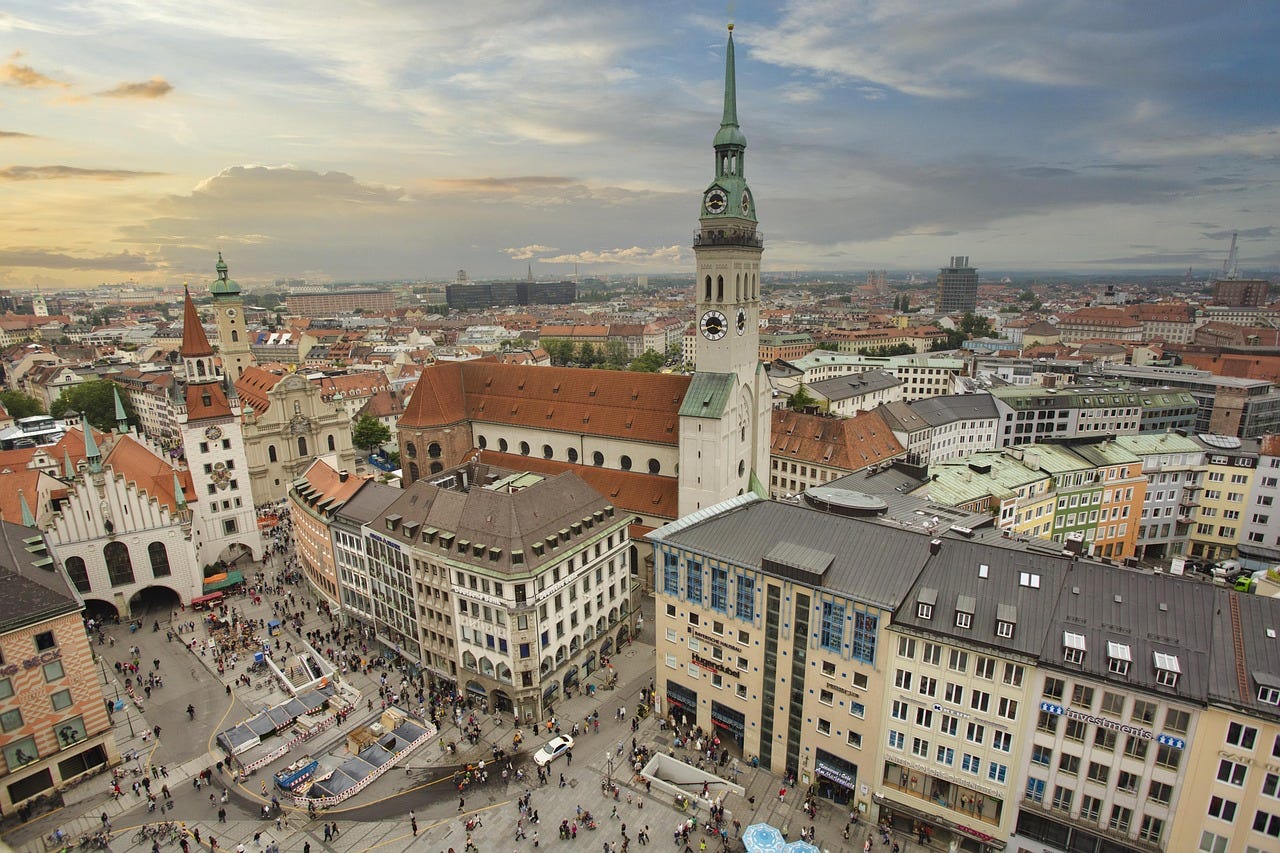TSMC Plants Its Flag in Munich
Fresh & Hot curated AI happenings in one snack. Never miss a byte 🍔

This snack byte will take approx 4 minutes to consume.
The world's biggest chipmaker is setting up shop in Bavaria – and it's not just for the pretzels
Well, well, well. Look who's decided to crash Europe's semiconductor party.
Taiwan Semiconductor Manufacturing Company (TSMC) - the folks who basically make every chip worth caring about – just announced they're opening a shiny new design center in Munich this summer.
And honestly?
It's about time someone brought some serious silicon firepower to the continent.
At TSMC's 2025 Technology Symposium (which sounds way more exciting than it probably was), President of TSMC Europe Paul de Bot dropped the news that had European tech executives doing happy dances in their ergonomic office chairs.
The Munich Design Centre will open in Q3 2025, and it's not just going to be another corporate outpost collecting dust.
This facility will focus on helping European customers design what the industry lovingly calls "high-density, high-performance and energy-efficient chips."
Translation: the really good stuff that makes your car smarter than your teenager and your industrial equipment more connected than your social media-addicted cousin.
The target applications?
Automotive (because apparently cars need more computers), industrial systems, AI (surprise!), and Internet-of-Things devices. Basically, if it needs to think, connect, or process data faster than a caffeinated programmer, this center wants to help design its brain.
Following Apple's Lead (Sort Of)
Here's where it gets interesting – and slightly awkward for anyone keeping score. TSMC is essentially following its biggest customer, Apple, right into Bavaria. Apple has already committed €2 billion to build what they're calling their largest European engineering hub in Munich.
So now we have the world's most valuable company and the world's most important chipmaker both setting up shop in the same German city.
But wait, there's more! (As every good infomercial would say.) TSMC isn't just opening a design center – they're also part of a massive €10 billion manufacturing venture in Dresden called the European Semiconductor Manufacturing Company (ESMC).
This joint venture with German heavyweights Infineon, NXP, and Robert Bosch is basically Europe's answer to "Hey, why don't we make some of these chips ourselves instead of depending on Asia for everything?"
When pressed about whether this whole Munich operation could help Europe catch up in the AI chip race (spoiler alert: Europe is currently losing badly to the US and China), TSMC executive Kevin Zhang gave the kind of diplomatically enthusiastic response that would make a UN ambassador proud.
"I'm all for building up the most semiconductor capability in Europe for AI applications," he said, which in corporate speak translates to "Sure, why not, if you pay us enough."
But let's be real for a moment.
Europe's semiconductor situation has been about as competitive as a three-legged horse in the Kentucky Derby. While the US and China have been throwing money at AI chips like confetti at a New Year's party, Europe has been... well, formulating strategies.
Lots and lots of strategies.
The continent's current chipmakers – Infineon, STMicroelectronics, NXP – are solid companies, but they've been working with manufacturing technology that's about as cutting-edge as a Nokia flip phone. The Dresden facility aims to change that by bringing "smaller manufacturing technology previously unavailable at European chipmakers." In chip terms, smaller is definitely better (and way more expensive).
Why Geography Still Matters
Now you might wonder why TSMC needs to physically plant people in Munich when they could just Zoom call their way to chip design glory. Kevin Zhang had a refreshingly honest answer: "We have to be on the ground right here closer. We need to have people here to really directly engage with customers."
Turns out, even in the age of digital everything, there's no substitute for being able to grab a coffee (or a beer, this is Germany after all) with your customers and hash out the details of why their AI chip isn't performing like they hoped.
Sometimes the most advanced problems require the most old-fashioned solutions: human conversation.
What This Actually Means
Strip away all the corporate speak and grand announcements, and here's what's really happening:
Europe is finally getting serious about not being left behind in the chip game.
The Munich design center isn't just about making better semiconductors – it's about building the expertise and relationships that could help Europe become less dependent on Asian manufacturing for the technology that runs everything from their cars to their coffee machines.
Will it work?
That's the billion-dollar (or should I say, billion-euro) question. But at least Europe is finally moving beyond just talking about semiconductor independence and actually doing something about it.
The Bottom Line
TSMC's Munich move is smart business wrapped in geopolitical necessity. They get closer to European customers, Europe gets access to world-class chip design expertise, and Munich gets to add "global semiconductor hub" to its already impressive resume (alongside Oktoberfest and BMWs).
The real test will come when these fancy new facilities start producing actual chips that can compete with what's coming out of Taiwan, South Korea, and the various corners of the globe where semiconductors are currently king.
But hey, at least the engineers will have excellent beer to console themselves with if things don't go according to plan.
What do you think – is Europe's chip strategy finally getting serious, or is this just another expensive way to play catch-up? Share your thoughts in the comments below.
About the author: Rupesh Bhambwani is a technology enthusiast specializing in the broad technology industry dynamics and international technology policy. When not obsessing over nanometer-scale transistors, energy requirements of AI models, real-world impacts of the AI revolution and staring at the stars, he can be found trying to explain to his relatives why their smartphones are actually miracles of modern engineering, usually to limited success.


